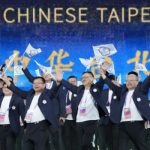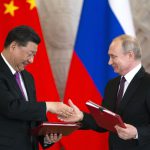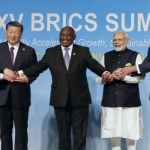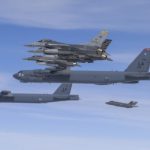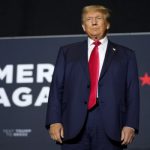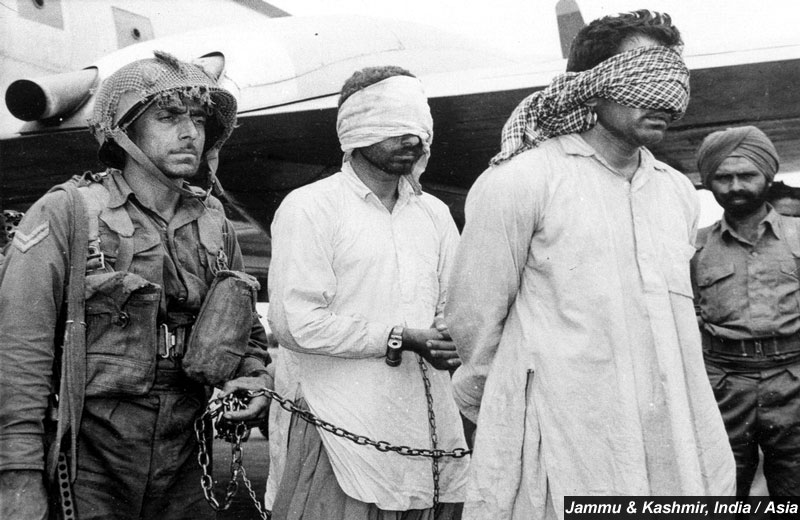
KASHMIR (AP) – Flashback of Some key events in Kashmir since Indian Independence and birth of Pakistan after British rule ended in 1947.
— August 1947: With the end of British colonial rule, the Indian subcontinent is divided into predominantly Hindu India and mainly Muslim Pakistan. A mass migration follows, with Hindus and Muslims moving to their country of choice, and more than a million people are killed in communal violence.
— October 1947: India and Pakistan fight their first war over control of Muslim-majority Kashmir, a kingdom ruled by Hindu Maharaja Hari Singh. The war ends in 1948 with a U.N.-brokered cease-fire, leaving Kashmir divided between the nations, with the promise of a U.N.-sponsored referendum.
— August 1965: A second war erupts over Kashmir, and India and Pakistan agree to a U.N.-mandated cease-fire in September.
— December 1971: The third war between India and Pakistan is fought in East Pakistan, ending with the creation of an independent country, Bangladesh.
— May 1974: India detonates a nuclear device in the first confirmed nuclear test by a non-permanent member of the U.N. Security Council.
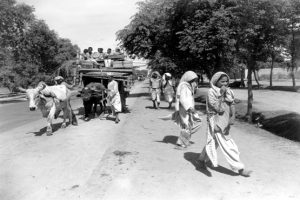
— December 1988: India and Pakistan sign an agreement that neither will attack each other’s nuclear installations or facilities; it takes effect in 1991.
— 1989: Armed resistance to Indian rule in Kashmir begins. India says Pakistan supports local fighters with weapons and training, which Pakistan denies, saying it only gives local Kashmiris “moral and diplomatic” support.
— May 1998: India detonates five nuclear devices and Pakistan responds by detonating six of its own. International sanctions are imposed against both.
— December 2001: India masses troops along its western frontier with Pakistan and the Kashmir boundary after blaming Pakistani insurgents for a deadly attack at the Indian Parliament. The standoff ends in October 2002 after international mediation.
— November 2008: Gunmen mount an audacious attack in India’s financial capital of Mumbai, killing 166 people. India blames a Pakistan-based militant group.
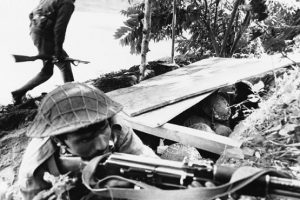
— September 2016: Suspected rebels sneak into an army base in Indian-controlled Kashmir and kill at least 18 soldiers. Indian forces later attack militant bases in Pakistan-controlled Kashmir.
— Feb. 14, 2019: A car bombing of a paramilitary convoy in Indian-controlled Kashmir kills 40 Indian soldiers. Militant group Jaish-e-Mohammed, headquartered in Pakistan, claims responsibility. India blames Pakistan and promises a “crushing response.”
— Aug. 5-6, 2019: India’s central government changes part of the Indian Constitution and downgrades Jammu and Kashmir from one state to two territories. The changes eliminate Kashmir’s right to its own constitution, limit its decision-making power, and allow non-Kashmiri Indians to settle there.
— Aug. 8, 2019: Indian Prime Minister Narendra Modi says his government acted to free Kashmir from “terrorism and separatism.”
Latest Updates – Indian PM: Changes in Kashmir will free it from ‘terrorism’
Modi’s nationalist government imposed an unprecedented security lockdown and a near-total communications blackout in the Muslim-majority region since Sunday night, arresting more than 500 people.
Kashmir is claimed in full by both India and its archrival Pakistan, although each controls only a part of it and rebels have been fighting Indian rule in the portion it administers for decades. This week, India downgraded the Himalayan region from statehood to a territory, limited its decision-making power and eliminated its right to its own constitution.
In his first nationally broadcast speech on the decision, Modi described the changes for Jammu and Kashmir, as the region is formally known, as historic. He assured its residents that the situation will soon “return to normal gradually,” although he gave no specifics.
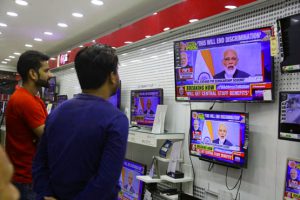
Modi said the “mainstreaming” of the Kashmiri people with the rest of the nation would expedite development and create new jobs with investment from public and private companies.
He accused neighboring Pakistan of using the past arrangement “as a weapon to incite people of the region against India.”
“I have complete faith under this new system we all will be able to free Jammu and Kashmir of terrorism and separatism,” Modi said, referring to ending the region’s special status granted under Articles 370 and 35A of India’s Constitution.
Those provisions “gave Jammu and Kashmir nothing but terrorism, separatism, dynasticism and large-scale spread of corruption,” and they were “used as a weapon by Pakistan to incite anti-national feelings against some people in our country,” he said.
Modi added: “This heaven on earth, our Jammu and Kashmir, will once again reach new heights of development and attract the whole world toward it. Ease of living will increase for our citizens. Citizens will receive all the benefits they deserve without any obstacles or challenges.”
Pakistan said it would downgrade diplomatic ties with New Delhi, expel the Indian ambassador and suspend trade and a key train service with India. Prime Minister Imran Khan told his National Security Committee that his government will use all diplomatic channels “to expose the brutal Indian racist regime” and human rights violations in Kashmir, a government’s statement said.
U.N. Secretary-General Antonio Guterres urged India and Pakistan to refrain from taking any steps that would affect the status of Kashmir. U.N. spokesman Stephane Dujarric said Guterres “is also concerned over reports of restrictions on the Indian-side of Kashmir, which could exacerbate the human rights situation in the region,” and reiterates his call for “maximum restraint.”
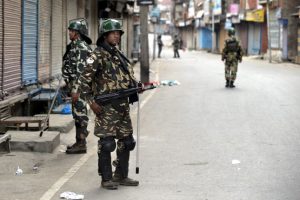
State-run All India Radio, which reported on the arrests without details, also said that cross-border firing by Indian and Pakistani troops hit the Rajouri sector of the Indian-controlled Kashmir late Wednesday. Many people there remain holed up in their homes.
Activist Ali Mohammed told broadcaster New Delhi Television that he organized ambulances to carry sick poor people to hospitals in Srinagar, the main city in India’s portion of Kashmir, since they can’t even use phones to seek medical help.
“It’s hell,” a patient told the broadcaster.
Modi’s national security adviser Ajit Doval visited the region Wednesday to assess the law and order situation in the country’s only Muslim-majority state where most people oppose Indian rule. The insurgency that began in 1989 and India’s ensuing crackdown have killed more than 70,000 people.
A petition challenging the lockdown was filed in India’s top court. Opposition Congress party activist Tehseen Poonawalla said he expected the Supreme Court to hear his petition seeking the immediate lifting of the curfew and other restrictions in Kashmir, including blocking of phone lines, internet and news channels.
He also sought the immediate release of Kashmiri leaders who have been detained, including Omar Abdullah and Mehbooba Mufti.
India said it regretted Pakistan’s steps and said in a statement that “the intention behind these measures is obviously to present an alarming picture to the world of our bilateral ties.”
The External Affairs Ministry said it was not surprised by Pakistan because Islamabad “has used such sentiments to justify its cross-border terrorism.”
Describing India’s latest steps in Kashmir as an internal matter, the statement urged Pakistan to review its decision so that normal diplomatic channels are preserved.
Pakistan’s Foreign Ministry spokesman Mohammad Faisal said authorities were considering a proposal to approach the International Court of Justice over India’s action. He condemned the imposition of communications blackout and security clampdown, saying “Kashmir has been converted into the world’s biggest jail” by India by forcing people to stay home.
“They are taking such actions in a panic,” he said. “They have touched something they don’t know how to get out of.”
Faisal said even the Indian opposition and media were against the moves in Kashmir.
He said Pakistan had never shut doors for talks with India in the past but India never positively responded to such offers from Islamabad. “Only they can say what they want now,” he said.
The government in Islamabad also said it would give diplomatic, political and moral support to people living in Kashmir and their “right of self-determination.” It also said it would ask the U.N. to pressure India to reverse its decision.
An uneasy calm prevailed along the Line of Control in Pakistan’s part of Kashmir, where people in border villages were awaiting government instructions to move to safer places, although some residents had already gone to nearby towns.
India and Pakistan have fought two of their three wars since independence over control of Kashmir. The first war ended in 1948 with a U.N.-brokered cease-fire that left Kashmir divided and promised its people a U.N.-sponsored referendum on the region’s future. It has never been held.
____
Newsroom | theworldmail.co.uk
Source/Contribution/Phtoto Credit by Associated Press

